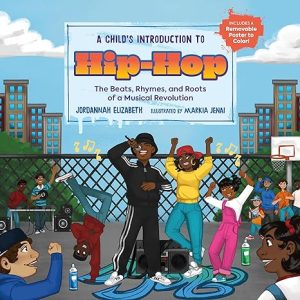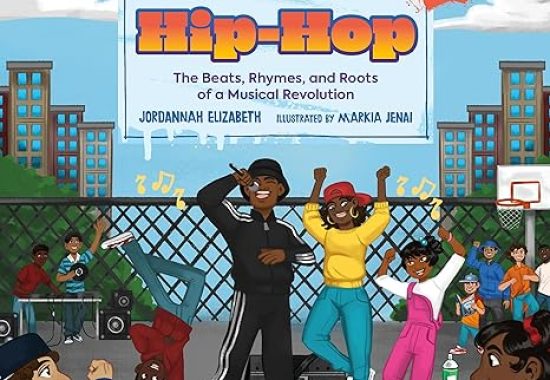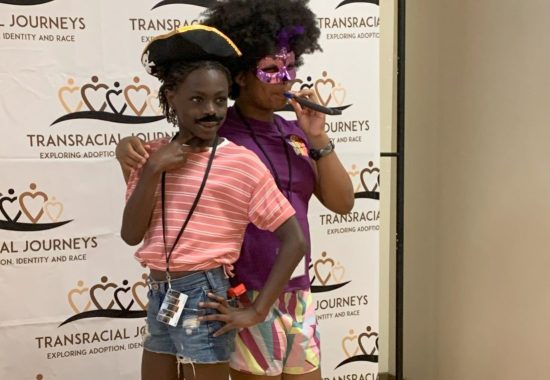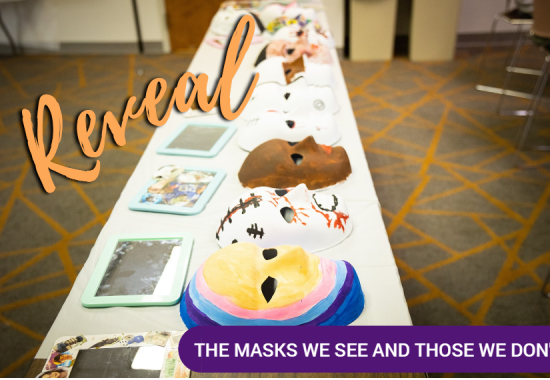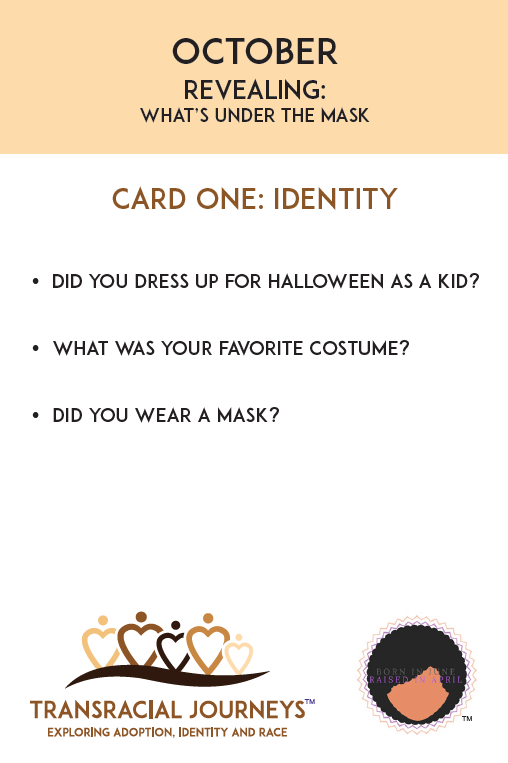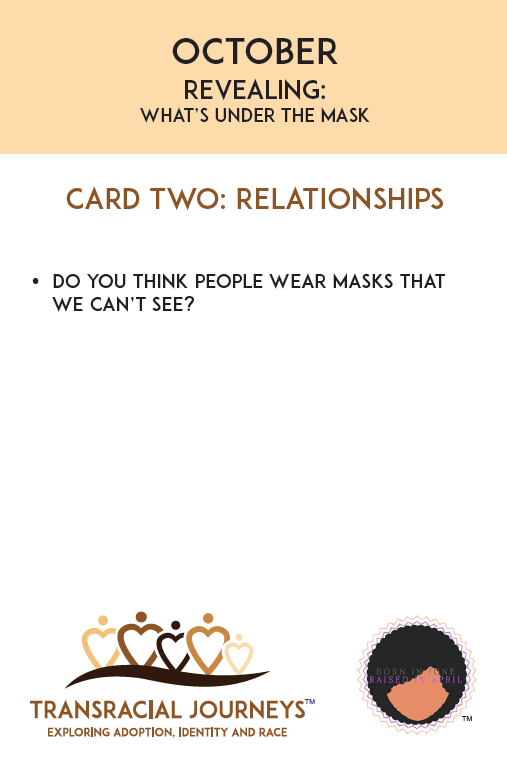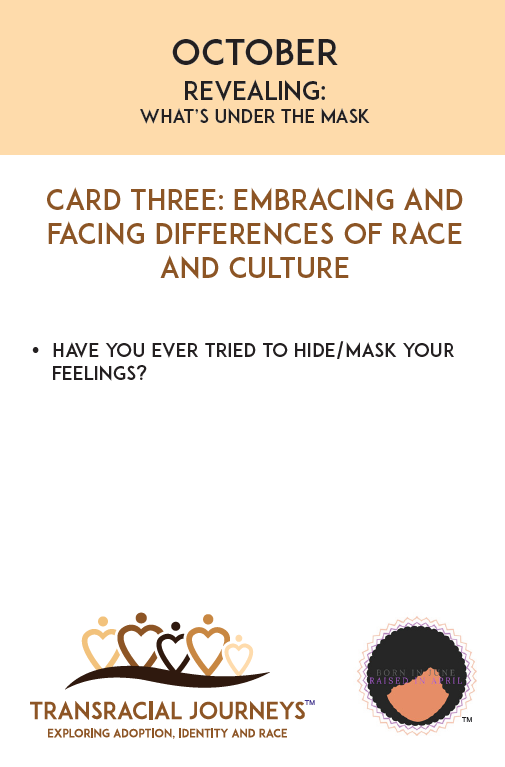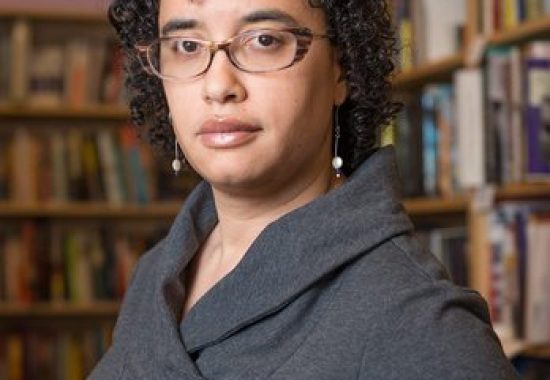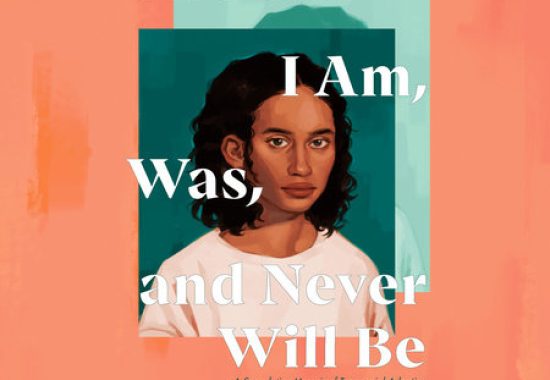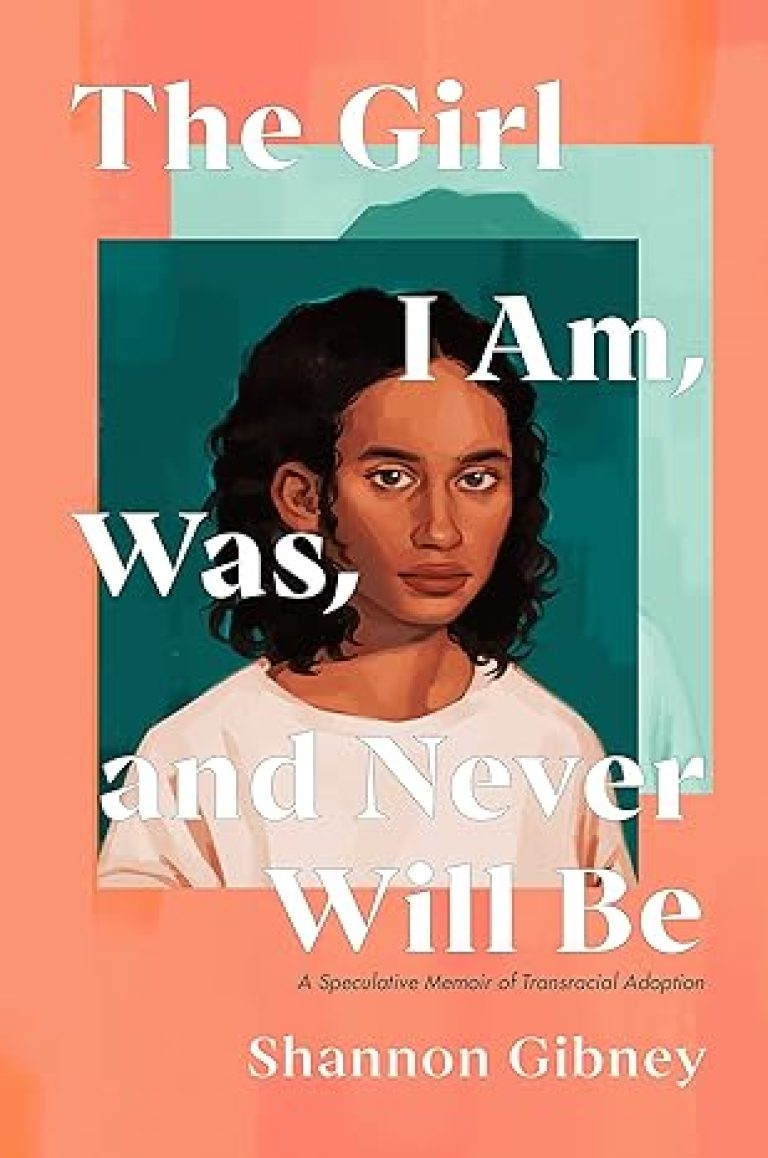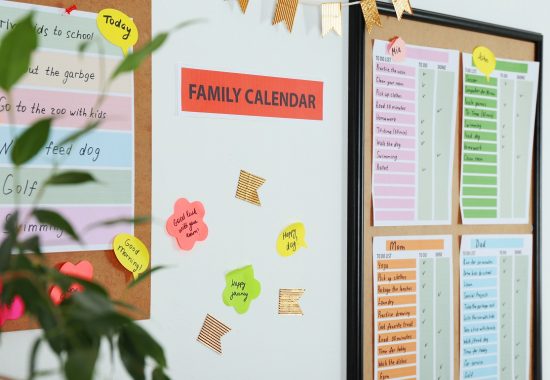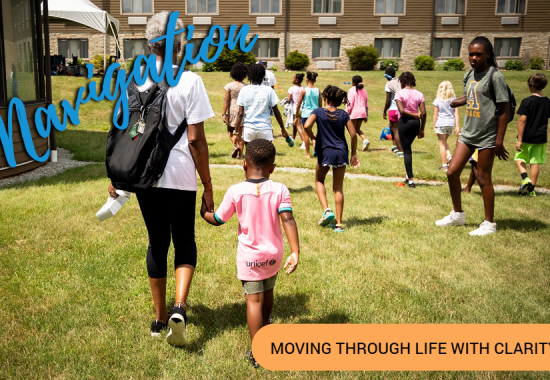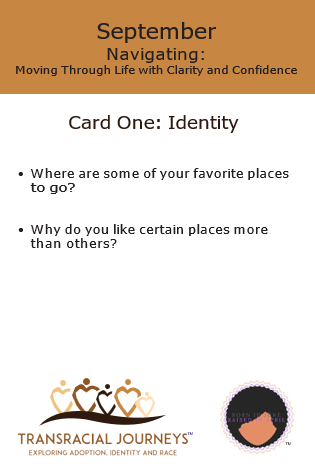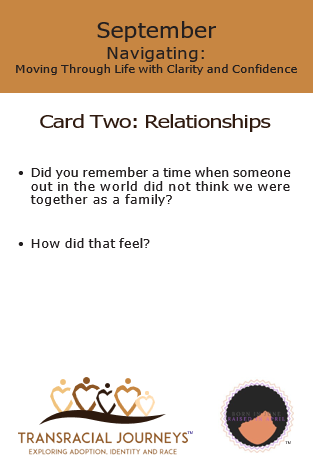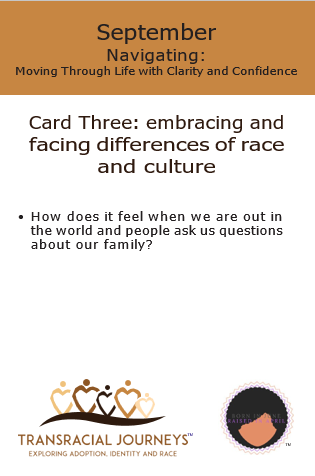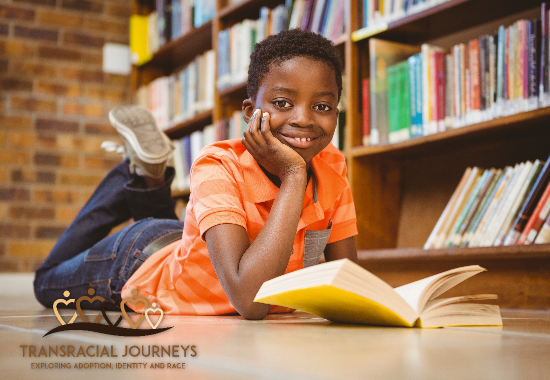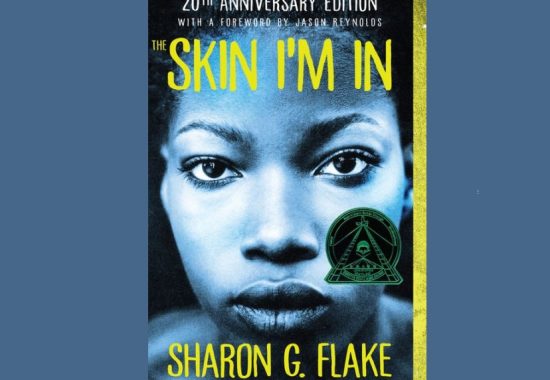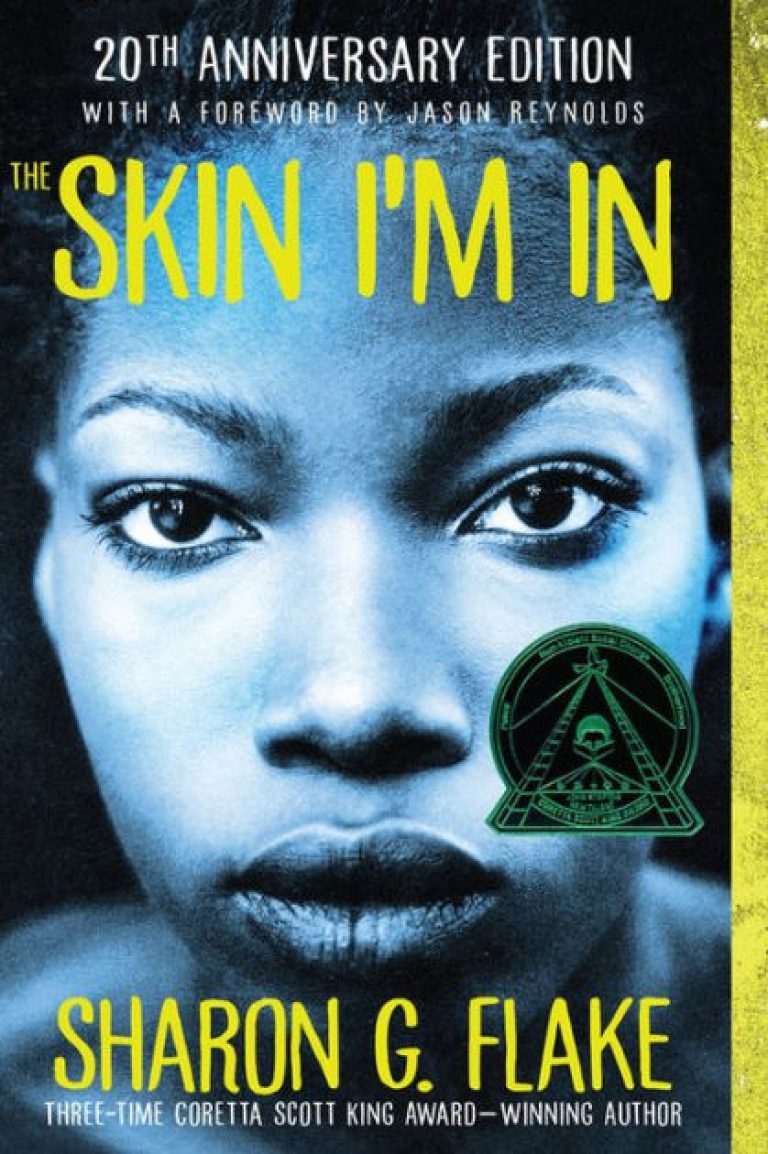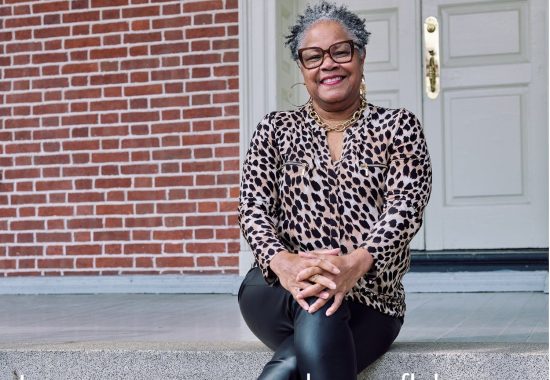by Avril McInally and Vicki Richards
August is the month we prepare our children for going back to school and April’s August card for Facing and Embracing Differences of Race and Culture asks some introspective questions that might prepare our families for the school year to come.
- What can you do to better prepare me for what I might face at school?
- How do you think your experiences in school were different from mine?
To help us adults to remember and to introduce our children to a range of possibilities and experiences that might unfold for them in the academic year ahead, we choose to focus on differences of race and culture via our recently-launched Transracial Journeys Bibliography. This bibliography has been a year in the making and prepared for our families by myself (a professional adult librarian) and my friend and colleague Vicki Richards, a professional children’s librarian. From birth through adulthood, we’ve curated a collection of titles that share experiences (fictitiously and non-fictitiously) that touch on topics and stories shared from the perspective of African Americans. Whenever we could find them, we also included stories and experiences of adoption, fostering, blended families, and LGBTQ+ people. There isn’t a lot out there about adoption, but there is more now than there has been in the past. Vicki and I are searching for more for next year’s bibliography.
In this Transracial Journeys Bibliography 2023, back-to-school and school themes are prevalent as stories like the following unfold:
- Vanessa in “Becoming Vanessa” grapples with her name on the first day of school
- “Goodbye Summer, Hello Autumn” depicts a multicultural society experiencing the change of season
- “Henry at Home” illustrates what happens between siblings when one of them leaves home for the first time to attend kindergarten
- In “Class Act” we see our Black protagonist enter 9th grade in a mostly white school
- Dax Devlon-Ross in “Letters to My White Male Friends” shares a lot about transitioning from an all Black school to an all white private school as a child in D.C.. His memoir imparts glimpses into racial situations our own children might be navigating but don’t want to talk about.
In most of the fiction for teens or young adults, there are lots of school scenarios depicting not only first love but also attending Black Lives Matter marches or children coping with racism and/or bullying.
Between us, Vicki and I have read every single title on this bibliography and either one or both of us has wholeheartedly endorsed the books that made it to our list. It’s in your hands to promote, support and share this growing, beautiful body of Black authors and illustrators. It’s in your power to create a reading experience for your children populated with bedtime stories, humor, comics, memoirs and literary experiences featuring Black characters and protagonists. There is a literary African American canon, unfolding and building momentum, of authors and illustrators we should be sharing with all of our children (Black and white). It would be a loss to not grow up experiencing the books of Kadir Nelson, Sharon Flake, Jewell Parker Rhodes, Sharon Draper, Kwame Alexander, Justin Reynolds, Jason Reynolds or L.L. McKinney to name a few.
It’s our hope that you not only share these titles with your children, but that you (the grown ups) read them too in order to get some insight into the landscapes our children navigate away from home and away from us (their parents, their teachers, their neighbors, etc.). We also would ask that you share these books with non Black or non adopted children and adults to help promote more understanding of the sometimes invisible challenges of racism or phobias our children encounter. These books help us get back to Facing and embracing differences of race and culture. Sometimes this embrace can be as simple as cracking open a book, turning the page and sharing it with a loved one.
With a love of and wonder in reading,
Vicki Richards and Avril McInally
(click here to open/print/download Transracial Journeys Bibliography 2023)
